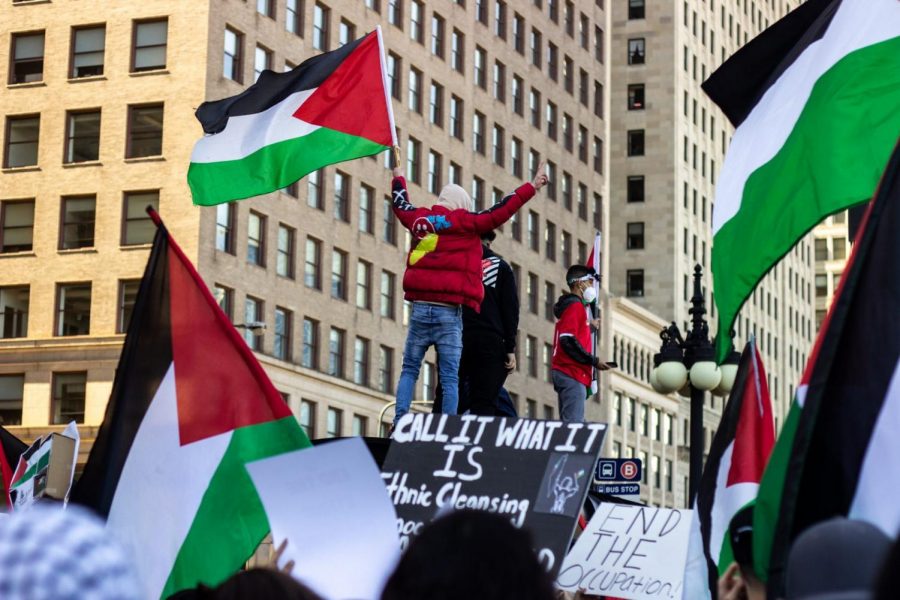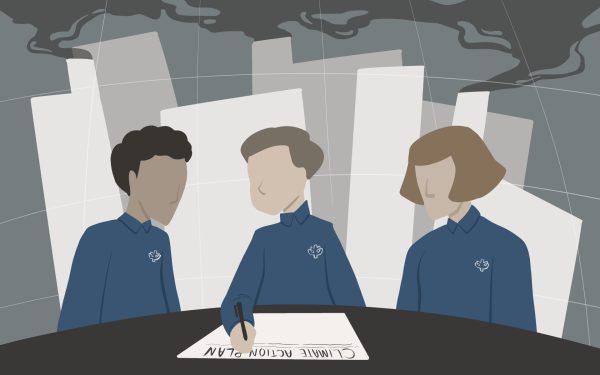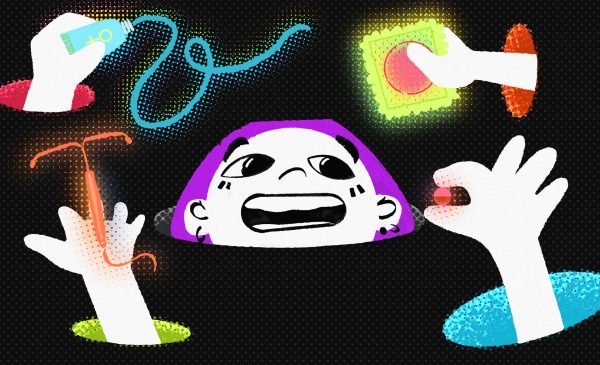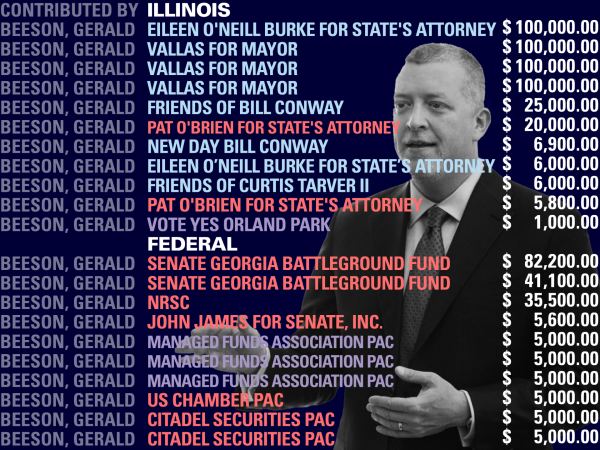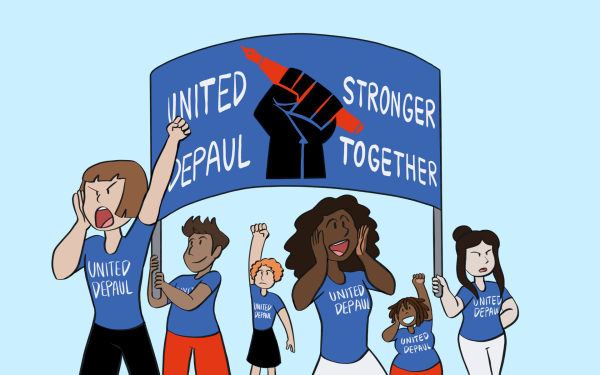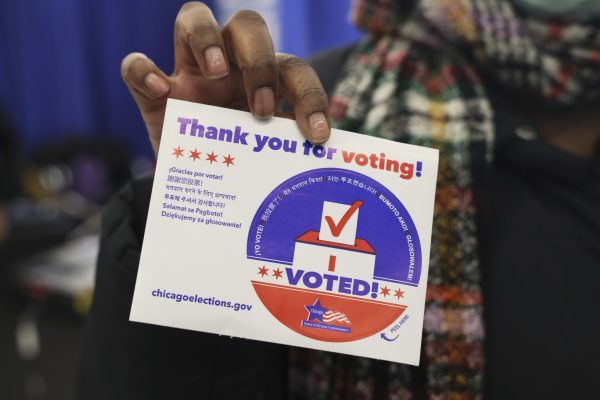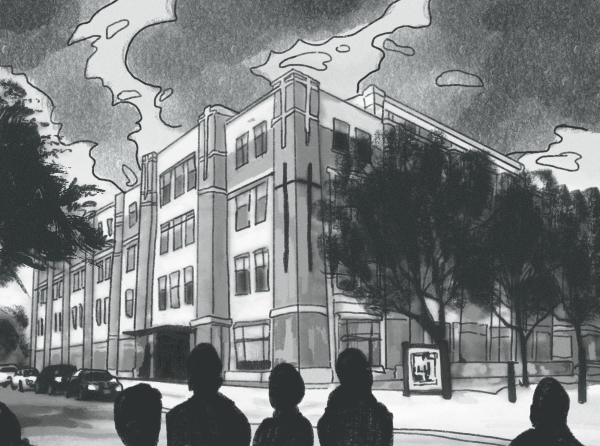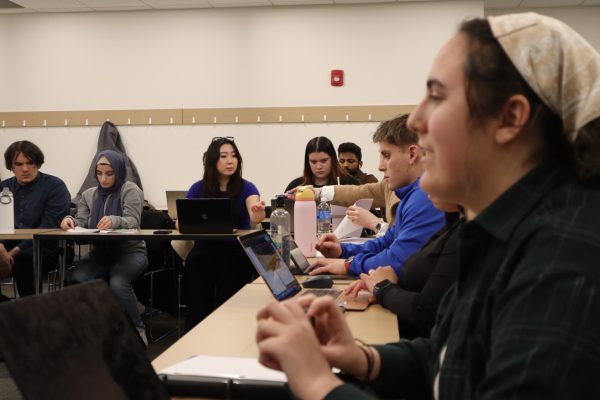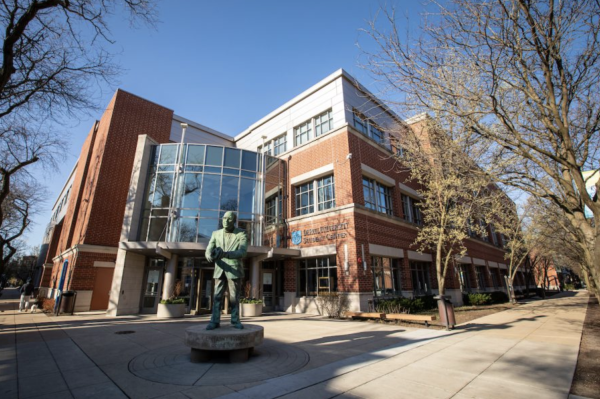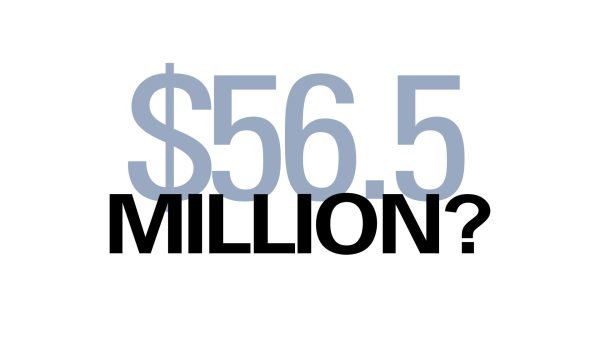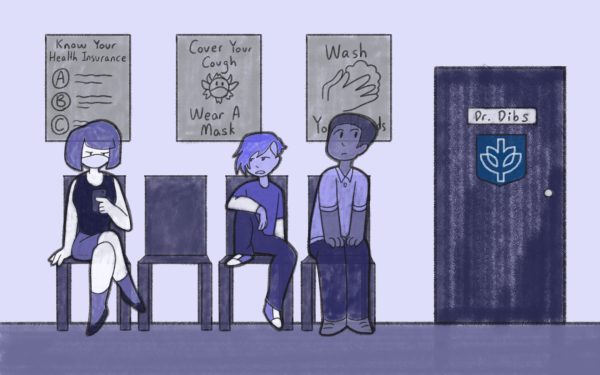DePaul community responds to university statement regarding ongoing violence in occupied Palestine
FILE-Protestors wave the Palestinian flag while standing on top of a bus stop.
On May 17, Rev. Guillermo Campuzano, vice president of DePaul Mission and Ministry, published a statement on Newsline titled, “A statement on the Israeli-Palestinian conflict: the ideal of peace and non-violence.”
“As I write this message, I feel the grief and anxiety that comes from observing the growing number of victims of the Israeli – Palestinian conflict in the Middle East, the new escalating violence, and the heartbreaking suffering of so many in the past days,” Campuzano wrote. “Our pressure to act and to not stay quiet comes especially from our students and alumni affected personally with family and friends living in fear, affected directly by the bombing, suffering and dying.”
The Newsline statement was published amid contiuning violence, specifically following recent attacks on Sheikh Jarrah — a predominantly Palestinian neighborhood in East Jerusalem.
“Neutrality is not a safe place today,” the statement reads. “Taking a stand is not a safe place either, and we understand that… In the Vincentian Spirit in which DePaul University is grounded, we stand by the victims. We stand by the victims of injustice and the victims of violence. We stand against the perpetrators of violence and systemic injustice that extinguish lives.”
The statement goes on to mention support for both Israelis and Palestinians.
“Following the words of Cardinal Cupich, archbishop of Chicago, we reaffirm the Palestinians’ right to statehood, unviolated territorial integrity, and safety; Israel’s right to a secure existence; and Jews’, Christians’, and Muslims’ fundamental religious right to access safely the holy sites of their respective traditions in Jerusalem, the City of Peace,” the statement reads. “‘All of these rights depend on a mutual commitment to justice. Violent conflict will not advance these rights, but rather it threatens any chance of lasting peace, without which there can be no authentic human flourishing.’”
One point of contention among members of DePaul’s Palestinian community and allies is the way the school’s statement describes the apartheid against Palestinians as “the Israeli-Palestinian conflict.”
“There were no surprises in DePaul’s statement on the ‘Israeli-Palestinian conflict’ — accurately described as the Israeli occupation of Palestine,” said Nour Jaghama, co-president of DePaul’s Students for Justice in Palestine (SJP). “Empty promises to ‘pray for peace’ do not offer me any comfort or protection; they let me know that DePaul will not be taking impactful action in support of its Palestinian students.”
“Considering the disproportionate aggression and violence that Palestinians face at the hands of Israel, it’s inappropriate to center the aggressor and ‘their right to a secure existence,’” Jaghama added. “The language in this statement is damaging to Palestinian students two fold. First, the University denounces neutrality, then ultimately remains neutral. Second, it’s isolating and perpetuates the narrative that the Israeli occupation of Palestine is two-sided.”
According to the Human Rights Watch, the words “apartheid” and “persecution” more accurately describe the crimes Israel inflicts on Palestinians.
“[The statement] was tone deaf,” said professor Khaled Keshk, DePaul’s faculty advisor for SJP. “[A two-state solution] does not make any sense, nor is it viable — nor is it appropriate or just.”
Watfae Zayed, DePaul Student Government Association’s first Palestinian president, shared a similar reaction to the school’s statement.
“It was upsetting to read ‘Neutrality is not a safe place today’ then right after seeing the university remain entirely neutral,” Zayed said. “Again, I did not have high expectations and was shocked DePaul put out a statement to begin with. [I] just wish there was more support for my community.”
On Friday, the cabinet-elect of DePaul’s Student Government Association released a statement of solidarity with the school’s Palestinian community. The statement mentions two demands suggested by SJP, including increasing protections for Palestinian students on campus and making the university’s investment portfolio publicly available so students, faculty and staff can have transparency about where DePaul invests its money.
“We denounce the actions of the Israeli government and the United States government which sends 3.8 billion dollars in military aid to Israel every year to carry out actions that are in violation of international law,” SGA’s statement reads.
“SGA condemns this behavior as it does not align with our Vincentian Values,” the statement continues. “DePaul University should not align itself with such behaviors. We call on the university to denounce Israel’s actions, take a stance in defense of our Palestinian community, and have the exepctation of those they invite into our community to have the same values.”
In recent years, DePaul has faced backlash for failing to protect its Palestinian community members. Professor Jason Hill, for instance, published anti-Palestinian sentiments in a Federalist article, and students spoke out against DePaul hiring a guest lecturer to present on Zionist represenatations last year.
“I do not think DePaul does enough to support its Palestinian students,” Zayed said in an email to The DePaulia. “This past year, I have reported 2 instances of harassment to the Dean of Students and never received a follow-up. When I brought concerns up to some members of administration, they were dismissed… I was able to find support in some of them who encouraged me to keep pushing forward. There’s still SO MUCH more that needs to be done, especially as we are preparing for an in-person environment.”
Zayed said that DePaul should provide more support for its Palestinian community considering the ongoing international violence.
“Personally, it would be nice to see DePaul offer safe grieving/support spaces for Palestinian students right now,” Zayed said. “We’re all hurting and at the same time, we are expected to educate others. Many of us are experiencing burnout and need the space to reflect and mourn.”


